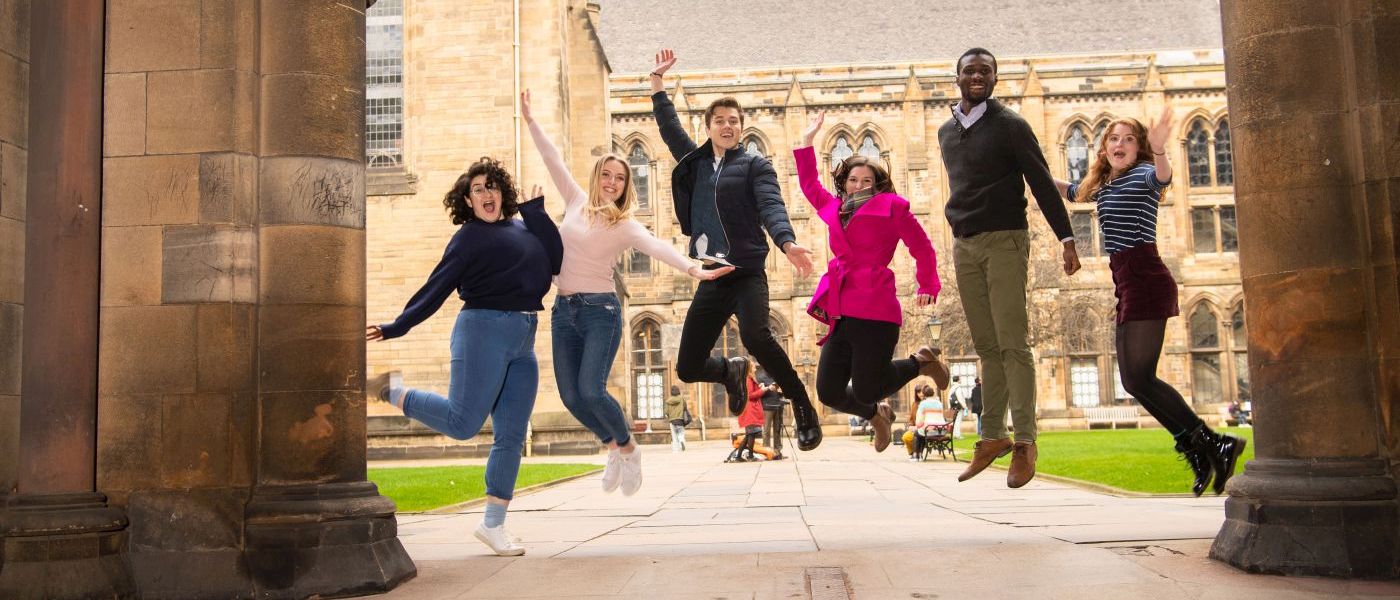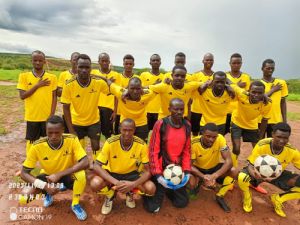
Examples of funded projects
College of Arts & Humanities
Scoping Stewart Conn’s Scottish Literature Radio Archive and Further
Funding from the Chancellor’s Fund supported a post-doctoral student in developing seminars and workshops on Scottish literature in radio archives, and started with Stewart Conn’s work (BBC Scotland’s Head of Radio Drama, 1977-92). This project uncovered previously uncatalogued material, benefiting the student, researchers, staff, and the public by preserving and sharing valuable insights. Conn and archive partners also participate in workshops, strengthening UofG’s partnerships and ensuring this legacy endures.
Cardboard Stories: Multilingual Artist books by Refugee and Migrant Women in Glasgow
The project engaged Glasgow partners and strengthened ties with migrant and multilingual community organisations. It delivered inclusive creative workshops with the Oasis Women’s Group in Maryhill, using art, writing, and media to share the stories of migrant and refugee women. The workshops fostered belonging and culminated in a community public event.
Academic Word Planner
The project created an Academic Word Planner as a commercial product, featuring fictional campus stories and illustrations to teach academic vocabulary. Aimed primarily at students with English as a second language, it also benefited all students. The planner was launched for UofG students in May 2022, UK students in October 2022, and globally the following academic year.
College of Science and Engineering
UGRacing, On-track for a Sustainable Future
The fund helped UGRacing build Scotland’s first fully student-built electric Formula Student race car. The car showcased the University of Glasgow at the IMechE’s annual Formula Student UK Competition, which UGRacing won the previous year. The electric vehicle entry aligned with UofG's commitment to sustainability and the "Glasgow Green" initiative. The project benefited 150 students by providing real-world industry skills and networking opportunities, while enhancing the University’s reputation through competition.
Transforming the Hunterian Museum Exhibits using Intelligent Mixed-Reality Experiences (THAMES)
The project improved visitor engagement with Scottish cultural heritage at the Hunterian using AI and VR technology. It created an immersive, downloadable app to explore art and exhibits, benefiting students, visitors, researchers, and children. Engineering design students also gained valuable experience. The project enhanced both local and global community engagement, offering interactive experiences online for those visiting Glasgow.
Sāvitri/Orfeo
The Glasgow University Opera Society hosted an end-of-year opera performance aimed at making opera more accessible by removing language and musical barriers. By keeping ticket prices affordable and using an off-campus venue, the society reached over 400 attendees, including students and the general public. The project benefited the 32 members of the student-led society and fostered a connection with the Royal Conservatoire of Scotland, with Conservatoire students joining the production each year. The performance showcased talent and enhanced the reputations of both institutions. The society sought a top-up from the Fund to cover rehearsal accompanists, lighting, venue hire, costumes, props, and music sheet printing.
GLAsense, Real-Time Kidney Care
GLAsense is a student team from the University of Glasgow developing a wearable biosensor to monitor kidney health continuously and without the need for invasive blood tests. As part of the international SensUs biosensor competition, the team aims to track biomarkers like creatinine in real time to support kidney health management. Twelve students from engineering, life sciences, and design are working with clinicians, patients, and kidney charities to co-design the system. Supported by the Chancellor’s Fund and Kidney Research UK, the project offers practical experience in healthcare innovation and explores new approaches in an often underrepresented area of research.
College of Medical, Veterinary and Life Sciences
Media Lab
The project created a media lab within MVLS, providing hardware, software, space, and training for students and early career researchers to produce creative content. It benefited students and researchers by enhancing communication skills, confidence, and knowledge, while also boosting the University’s reputation.
Establishing a Native Oyster Restoration Site to Create Inclusive & Sustainable Work Placement Opportunities
This project established a native oyster restoration programme in Largs Channel, North Ayrshire, providing local, sustainable internships for environmental science students. It aimed to offer practical field experience, more inclusive than expensive overseas internships, while contributing to the University’s carbon offset goals. Students gained hands-on experience in site establishment, permits, agency collaboration, restoration, surveys, and business development. The project benefited interns' career progression and allowed other students to engage once the site was established.
Glasgow Spatial Biology Conference
This project secured funding for planning, advertising, and hosting a national conference on Spatial Biology in Glasgow. The event brought together cross-institute experts to discuss the latest research and foster collaborations for spatial data analysis. It benefited researchers by providing a platform to showcase their work and offered students networking opportunities within the University and beyond. The conference was hosted at the Advanced Research Centre.
College of Social Sciences
Teaching Garden Maintenance, Upgrade and Events
The School of Interdisciplinary Studies garden, a popular campus space for relaxation and learning, was upgraded through this project. It involved regenerating rotting wooden raised beds and installing a new composting facility. To attract more visitors, events like a Halloween harvest, environmental outreach, and music and arts projects were hosted. The project benefited students, staff, and the public, including 20-25 volunteers involved in growing plants. Its sustainable focus aligned with the aims of the Chancellor’s Fund.
Internationalisation at home
The project created an evidence-based platform to develop initiatives for the social integration of domestic and international students post-pandemic. It established a diversity engagement group, explored the relationship between students, and developed integration programs. The project benefited students, researchers, and the University by fostering a more inclusive community. Its main focus was to investigate and improve perceptions of international students and implement new integration strategies.nline.
Talking About Scotland: A podcast series about language and identity in Scottish schools
This podcast series focused on linguistic diversity in Scotland's schools, exploring its history, present, and future. It allowed pupils and teachers from 12 schools to share their voices, boosting their confidence and knowledge. Academics and language activists also contributed to provide context. The series reached 30,000 listeners globally and included lesson plans for use in schools. The project raised awareness about representation and equity, benefiting teachers, the wider community, and the University by enhancing its reputation.
Clubs and Societies
Kits for Conservation
The Chancellors Fund recently gifted a football team in a remote community of central Kenya, FC Mpala, with brand new football kits. Dr. David Dominoni and Dr. Oskar Brattstrom from the School of Biodiversity, One Health and Comparative Medicine, coordinate the "Ecology and Conservation of African Ecosystems" which runs a two-week field course in central Kenya at the Mpala Research Centre (MRC, https://mpala.org/ ). Students participating on the course have the chance to experience field research at its best while building relationships with local communities through work and social events. The kits were donated to the team during a local community event, and highlight the University's strong commitment to building an inclusive community, in Scotland and abroad.

James McCune Smith Annual Conference and Network
In 2022, the first 17 James McCune Smith (JMS) scholars were recruited for a flagship scholarship program supporting Black UK students pursuing PhDs at the University. This project hosted a high-profile, two-day “unconference,” featuring pop-up events like music, poetry, and dance, where scholars shared their work. The event, with inspiring speakers from the Black community, benefited JMS scholars, 200 invited guests, and the wider Black community. It enhanced the University’s reputation for its commitment to anti-racism and diversity.
Sports Bursary Programme
The Chancellor’s Fund has supported the UofG Sports Bursary Programme for 13 years, helping students compete internationally while studying. The funding covers travel, entry fees, equipment, and more. Many recipients have achieved success, including winning medals at events like the Commonwealth Games, enhancing the University’s reputation. The Chancellor’s Fund has contributed about 40% of the funding since the programme’s launch.
Cultural Community
This project was to fund activities and events across the UofG community aimed at students and more. It benefitted students by getting them more involved and creating inclusive and safe cultural events. Over 250 students signed up to a pilot event, with 93% saying they would attend again. Like many projects this year, it focuses on reconnecting our community following two years of disconnect and creating opportunities for inclusion.

